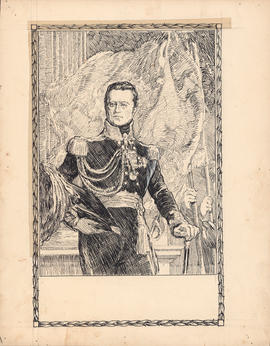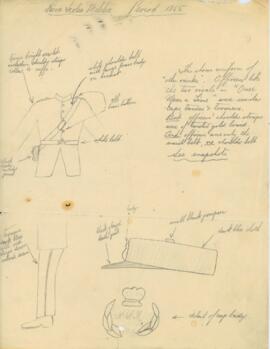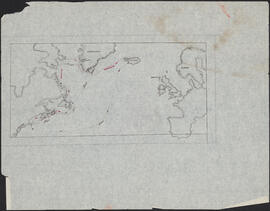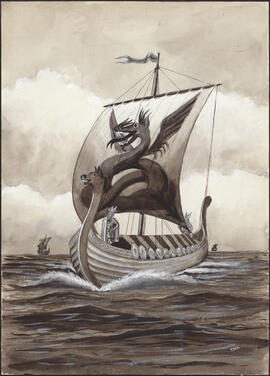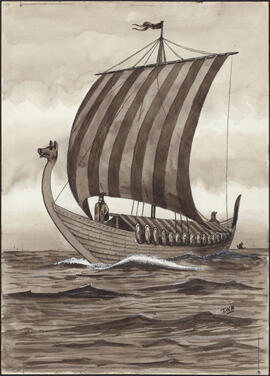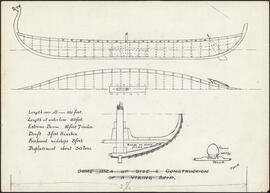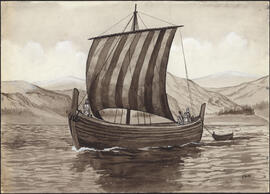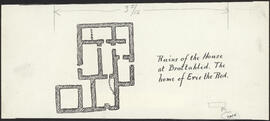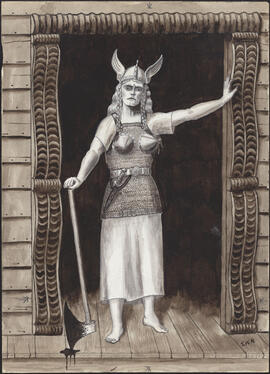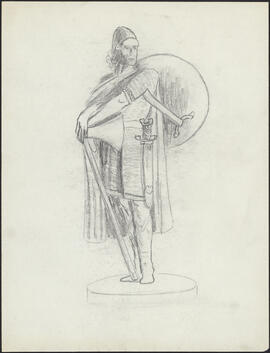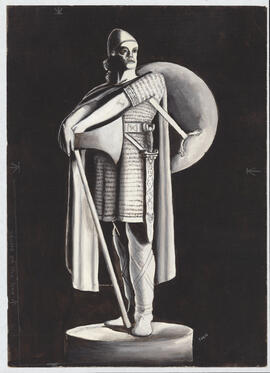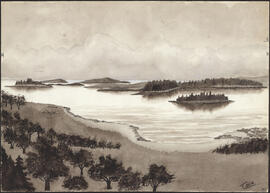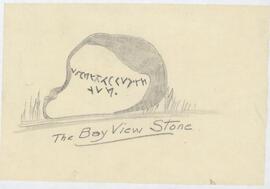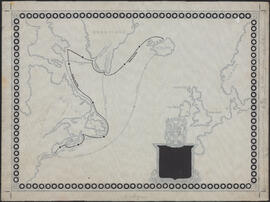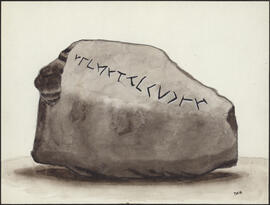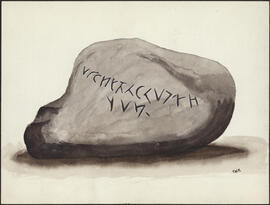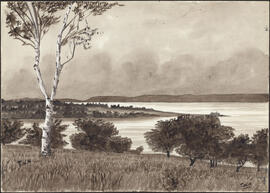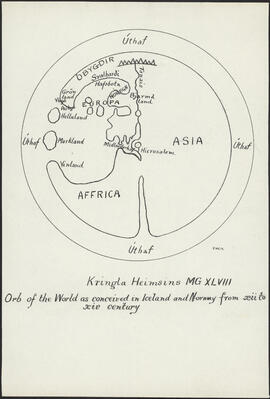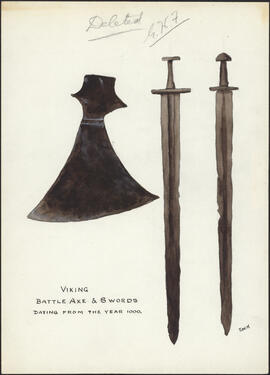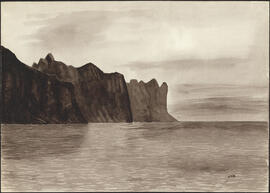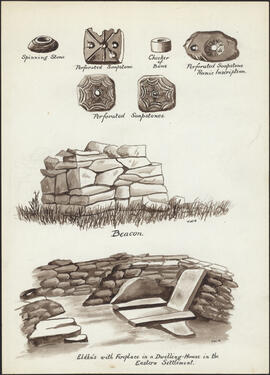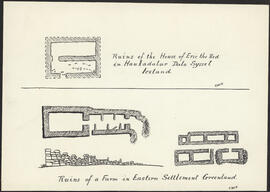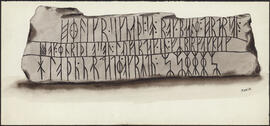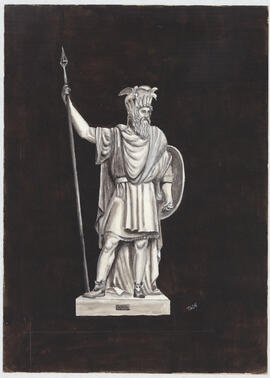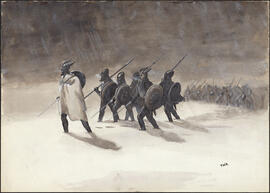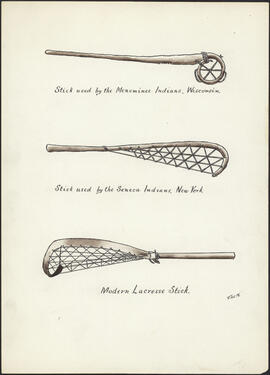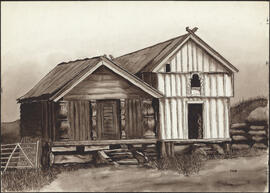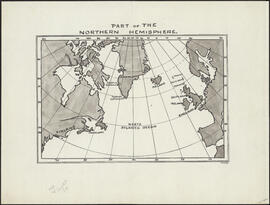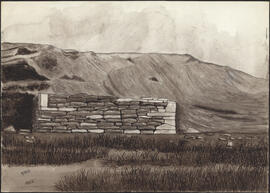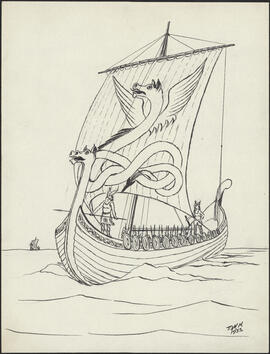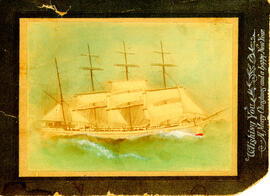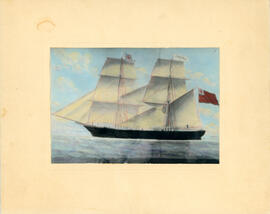Collection includes 41 original pen and ink drawings by Arthur Lismer commissioned ca. 1919 by Dalhousie's Centenary Committee to illustrate its history of the university's first century: One Hundred Years of Dalhousie, 1818–1918, which was published in 1920. The collection includes the original and some unfinished and/or unpublished versions of all but one of the 26 illustrations used in the book, which features historic and contemporary Dalhousie figures and buildings. There are several portraits of President Arthur Stanley Mackenzie, which were rejected in favour of publishing a photographic image, as well as a rough sketch of Lismer's daughter, Marjorie. Also included in the collection are 22 reproductions, which are probably printer's proofs, given the poor quality of the paper.
Twelve of the Lismer images were also reproduced in the booklet titled simply Dalhousie University, which was produced by the Dalhousie Million Committee as part of the promotional literature supporting the university's 1920 Million Dollar Campaign and published shortly after the Centenary Committee's book.
There is little documentary evidence beyond these two publications regarding the precise date or other details of the Lismer commission; one of the drawings is marked "1 March 1920," and another "27 March 1920," on date-received stamps from the engraving department of Rous & Mann, the Toronto company that printed both publications. The existing archival correspondence between the university and the printer (UA-3, Box 621, Folder 6) is from the Million Committee file, and refers only peripherally to the Centenary Committee's book project. A letter dated 24 March 1920 from Rous & Mann advises that the cuts, or illustrations, proposed for use in the campaign booklet were "at present locked up for the printing of the other Book in course of preparation," while later correspondence indicates that the printing and delivery of the campaign booklet gained precedence over the commemorative history, and the first run of these booklets was shipped on 17 April. The history was printed shortly after that, although by 26 May it had already been reprinted, owing to the misspelling of George Stewart Campbell, whose middle name appears in the first printing as "Stuart." The existence of the misprinted copies is due to their purchase at a steep discount by the Million Committee, who wrote: "... if the price were attractive a way might be found to use them."
No correspondence or documents have been found in the Dalhousie University Archives regarding Lismer's actual commission: within the Million Committee's correspondence file exists a single telegram from President Mackenzie to Arthur Lismer, dated 3 April 1920, which expresses a need to rush the printing along with the instruction: "leave layout to your judgement," the sole reference to Lismer's role in either project.

